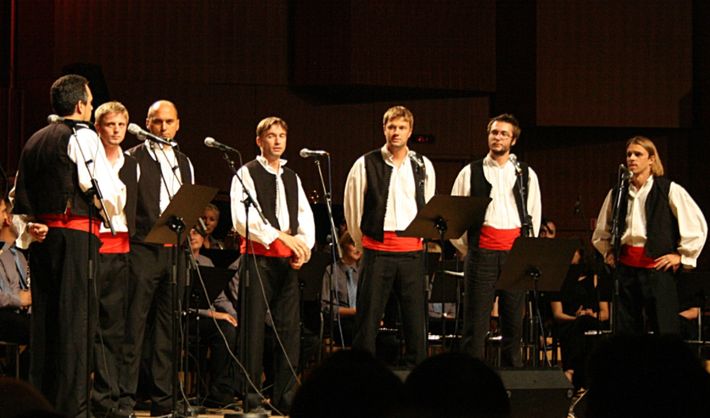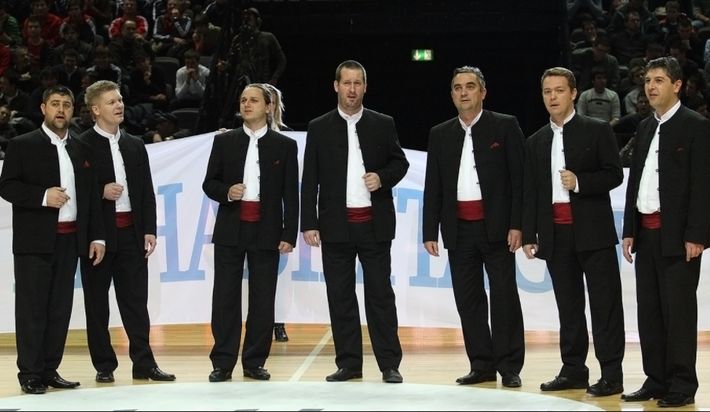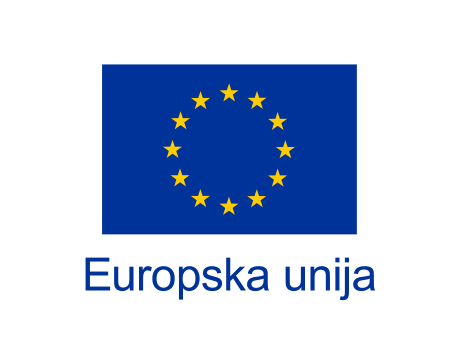
Klapa music is traditional form of a cappella singing in Dalmatia, Croatia. The word klapa translates as “a group of friends” and has its roots in littoral church singing. The motifs usually celebrate love, wine (grapes), country (homeland) and sea. Main elements of the music are harmony and melody, with rhythm rarely being important. Klapa was inscribed in UNESCO Intangible Cultural Heritage of Humanity in 2012.
Standard klapa group consists of a first tenor, a second tenor, a baritone, and a bass. It is possible to double all the voices exept the first tenor. It is usually composed of up to a dozen singers, traditionally male. In recent times, female vocal groups have grown quite popular, but in general male and female groups do not mix.
Although klapa is a cappella music, sometimes it is possible to add a gentle guitar and a mandolin (instrument similar in appearance and sound to tamburitzas). Klapa can be accompanied with synthesizer keyboards, usually simulating percussion instruments.
Modern day
The klapa tradition is still very much alive, with new songs composed and festivals held regularly.[4] The Festival of the Dalmatian Klapas in Omiš is the best known music festival and has a long tradition. One of the most successful groups in recent times is Klapa Šufit, who won the festival for three years in a row 2006-2008. Many young people from Dalmatia treasure klapa and will sing it regularly when going out eating or drinking. It is not unusual to hear amateur klapa singing on the streets in the evenings over some wine and food.
In 2013, Croatia chose a klapa group to represent the country at the Eurovision Song Contest. The klapa group was called Klapa s Mora (Klapa from the Sea), with the entry “Mižerja”. Klapa s Mora is a “super klapa ensemble” of 6 performers chosen by Maestro Čačija from five existing klapa groups, namely two from Kampanel, and one each from Sinj, Crikvenica, Šibenik and Grdelin.












